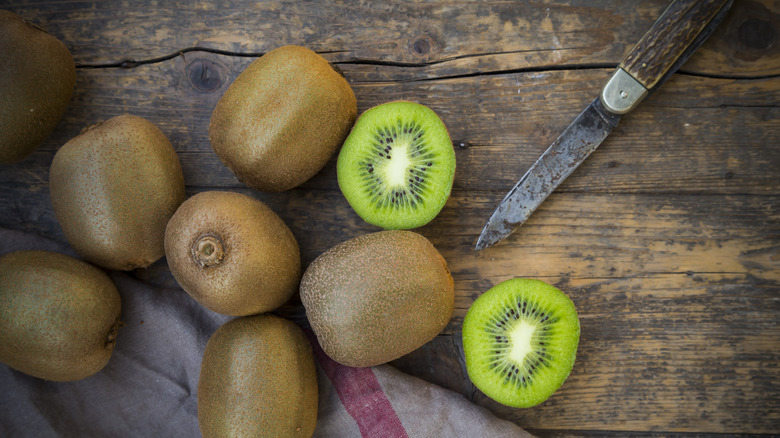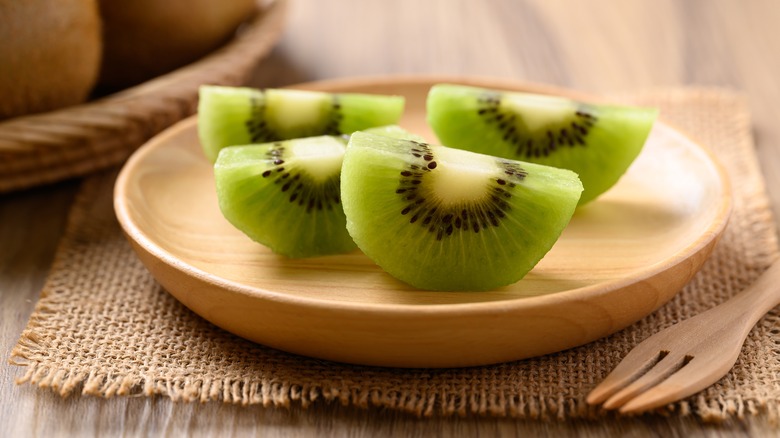Here's How To Store Kiwi (And How Long It Will Stay Fresh)
Kiwis are fuzzy fruits with edible brown skins that can be stored either on the counter or in the refrigerator — it all depends on how ripe the fruit is, and how much longer you'd like to keep it. That's why the first step in deciding how to store kiwi is to gauge its ripeness. If it feels firm and hard under your fingers, the fruit is still unripe. In that case, the easiest way to store it is to leave it on the counter to ripen. Just make sure to keep it in a cool area away from direct sunlight so it doesn't spoil.
Unripe kiwis will mature within three to four days at room temperature. But if you'd rather slow down the process, place the kiwis in a plastic bag and pop them into the refrigerator instead. The chilly temperature will keep them fresh for up to a month.
If your kiwis are soft, fragrant, and perfectly ripe — and you're not ready to eat them just yet — the best place to store them is in the refrigerator. To do so, put the kiwis in a ventilated plastic bag, leaving enough room so that the fruits don't squish each other. Place the bag in the crisper drawer of the fridge (this is also the absolute best place to store grapes), and your kiwis will stay fresh for another five to 10 days, possibly even two weeks.
How to store sliced kiwi
One thing to know about kiwi is that it stays fresh longer when left whole with the skin on. If you have leftovers of the fruit after making a zesty kiwi pavlova, you can still store it after it's been peeled or sliced, of course — just transfer the slices into an airtight container or a resealable plastic bag, seal it tightly, and place it in the refrigerator. However, make sure to use the kiwi within two days or so, because it won't last longer than that in the fridge.
A better alternative for long-term storage is to freeze the kiwi, where it will stay fresh for up to three months. All you have to do is line the peeled kiwi slices onto a tray and freeze them for about two to three hours. Once they solidify, transfer the slices to an airtight container and refreeze them.
That said, don't be surprised if you notice certain changes in the texture of the frozen kiwi — it doesn't necessarily mean the fruit has spoiled. While kiwi doesn't suffer from oxidation and turn brown like peeled potatoes and apples, its texture becomes mushy once cut. This is why it's best to use frozen kiwi in smoothies, juices, or recipes where its gooey consistency won't make a noticeable difference. However, make sure to toss out any kiwi that shows signs of mold or rot — these are indicators that the fruit is well past its prime.


